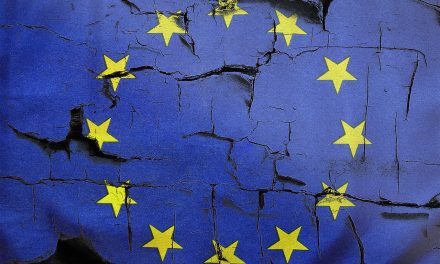Sir William Cash(Stone) (Con) : History does not so much repeat itself as do human nature and nationalistic ambitions, despite decades of protestations of European peace and harmony. The current crisis goes back even further and with even deeper roots than are currently understood.
We should never forget Bismarck’s warning that whenever he heard the word “Europe” on the lips of his fellow statesmen, he began to worry. Central to the accumulating current Ukrainian situation is the fact that both Chancellor Kohl and later Angela Merkel, not to mention Gerhard Schröder and strategists in the European Union, contributed profoundly to the overwhelming strategic failure that we face today. This can be traced back to the bilateral treaty, underestimated by most at the time, between Gorbachev and Kohl in November 1990, with the wall having come down, as Maastricht loomed, and as Margaret Thatcher fell. The treaty led to a massive shift in the balance of power in eastern and central Europe. By signing this bilateral treaty, they put Germany and Europe into a continuing state of dependency on Russian energy and in respect of related matters. We continue to pay the price. In 1990, Chancellor Kohl was convinced that there had been a seismic shift in favour of Germany’s leadership of Europe. In a 2001 article in The European Journal, I argued that the situation was then coming to a head, with grave implications for the future geopolitical stability of Europe. I pointed to the inextricable relationship between Germany and Russia, embedded in Germany’s strategy, and to the indebtedness of Russia to Germany and therefore its dependency. Russia’s debt, 40% of which was owed to Germany alone, was accompanied by a debt rescheduling agreement signed in Berlin in July 2000. The agreement was complemented by contracts for export credit guarantees provided by the German state-owned company Hermes. I emphasised my concern that Germany was then agreeing in principle to convert Russian debt into equity in Russian companies—in which Gerhard Schröder, the ex-Chancellor of Germany, became a major player. I believe that even now he is still the chairman of Rosneft, is on Gazprom’s board of directors and is chairman of the Nord Stream shareholders committee. Is that still so? Has he been sanctioned? I warned then—in 2001—against German firms increasing their stake in Gazprom. At that time, natural gas exports from Russia to Germany amounted to 35% of Germany’s annual consumption. I argued that Vladimir Putin, scarcely heard of at the time, was a Russian nationalist who bitterly resented being dependant on America and who had a choice between building an alliance with China or with Europe. I argued that Russia’s dependance on Germany had within it, the seeds of self-destruction and represented severe dangers for future geopolitical stability. By the arrangements I have described, Russia was enabled to weaponise its energy against the West in return for short-sighted hubris and self-interested greed. We live today with the consequences of those mistakes; therefore arises the tragedy of Ukraine. Nord Stream 2 – let alone Nord Stream 1 – bypasses Ukraine, so it remains one of the greatest strategic mistakes of our time, conceived all of 20 years ago or more. It created Europe’s dependency on Russian gas and oil supplies, which must be totally ended now. When we reflect on the fundamental shift represented by Olaf Scholz’s reversal of Germany’s defence policy, and its increase in defence spending, let us remember that two swallows do not make a Summer, and that it was a mere three weeks ago that I wrote an article where I pointed out that Germany was providing only a few thousand helmets to Russia’s eastern European neighbors and merely pausing Nord Stream 2. It is now not a question of merely learning questions with the benefit of hindsight: the real point is whether we will ever learn the real lessons of history and of human nature that need to be learned for the future. As I speak, Germany still depends on Russian oil and gas and Nord Stream 2 has only been paused, not yet completely abandoned.
Regaining our self -government has enabled the UK to become self-sufficient in deploying our new resources from the North Sea licensing regime, as the Prime Minister has indicated. It has given us the ability to rely on, among other things, our own domestic nuclear industry – I pay tribute to the nuclear delivery group, of which, I am a member, for all the work, that it has done over the past six months – and, hopefully, sensible and balanced renewables. We must accelerate this programme at once as a matter of national interest. We must also encourage the European Union to do the same, and we must never forget that domestic national energy requirements and self-sufficiency are at the centre of gravity of economic, and, therefore, political independence. We are part of an alliance. We will work in alliance with Europe, in alliance with the United Nations and in alliance with the United States and the rest of the world against Putin.
We must never forget that we are in peril and we must fight back.

